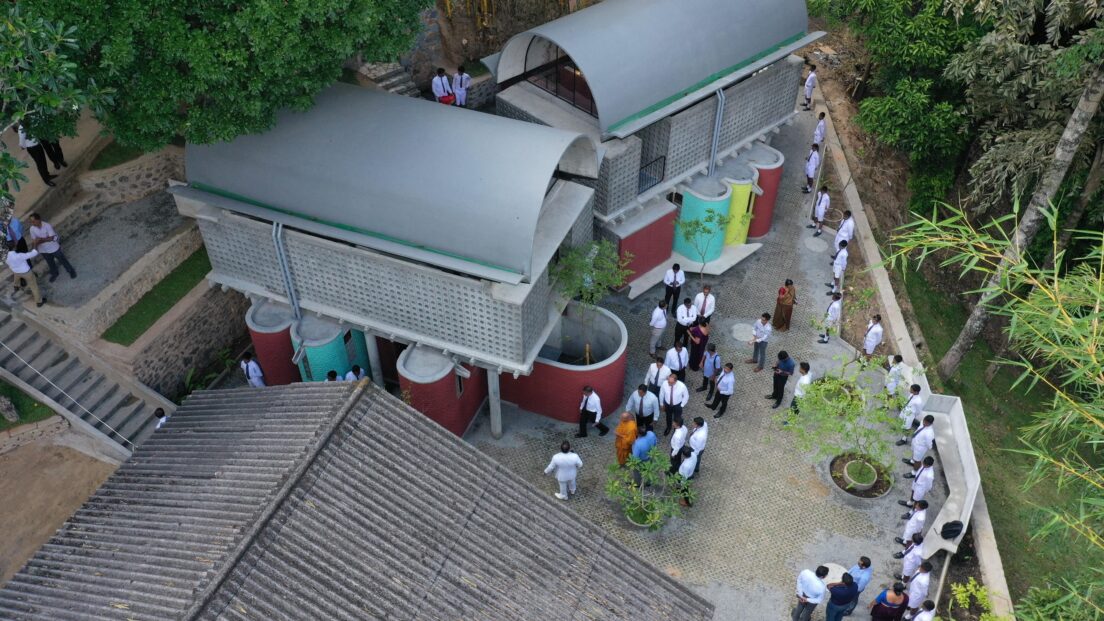New school toilets to transform Sri Lanka’s construction industry

With the construction of toilet facilities at a school in Sri Lanka, the Laboratory of Construction and Architecture at the Swiss Federal Institute of Technology Lausanne (EPFL) is demonstrating how the industrial restructuring of construction in the country can succeed. The prototype is based on 20 years of research.
Paolo Tombesi, the director of the Laboratory of Construction and Architecture(FAR) at the Swiss Federal Institute of Technology Lausanne(EPFL), and visiting scientist Milinda Pathiraja have completed a groundbreaking construction project at its old high school in Kandy in central Sri Lanka: The construction of two toilet facilities is designed to demonstrate industrial development potential through architectural design. Their prototype is based on 20 years of joint research.
With strategic planning, the design of such infrastructures “can be used as an opportunity to showcase and disseminate innovations and introduce practice-based triggers for a much-needed revitalisation of local building culture”, Pathiraja is quoted as saying in an EPFL report. It was also about “cultivating new, economically sustainable and ecologically oriented building ‘traditions’ for countries facing urbanisation pressures, limited raw materials and financial constraints”.
For example, non-sustainable building materials that require functioning supply chains, such as glass and aluminium, or are not available in the country, such as clinker, were avoided. The two researchers also wanted to illustrate how building policy and sustainability lead to value creation at different points, for example in the case of vaulted roofs made of ferrocement.
For all this, the industry needs concrete examples and prototypes “that show both the technical value and the economic feasibility of such ideas”, says Tombesi. These toilets simultaneously lower the total cost to $400 per square metre, including sanitation. “And given the nationwide need for this type of programme, the lessons we’ve learned will likely be picked up by others.”